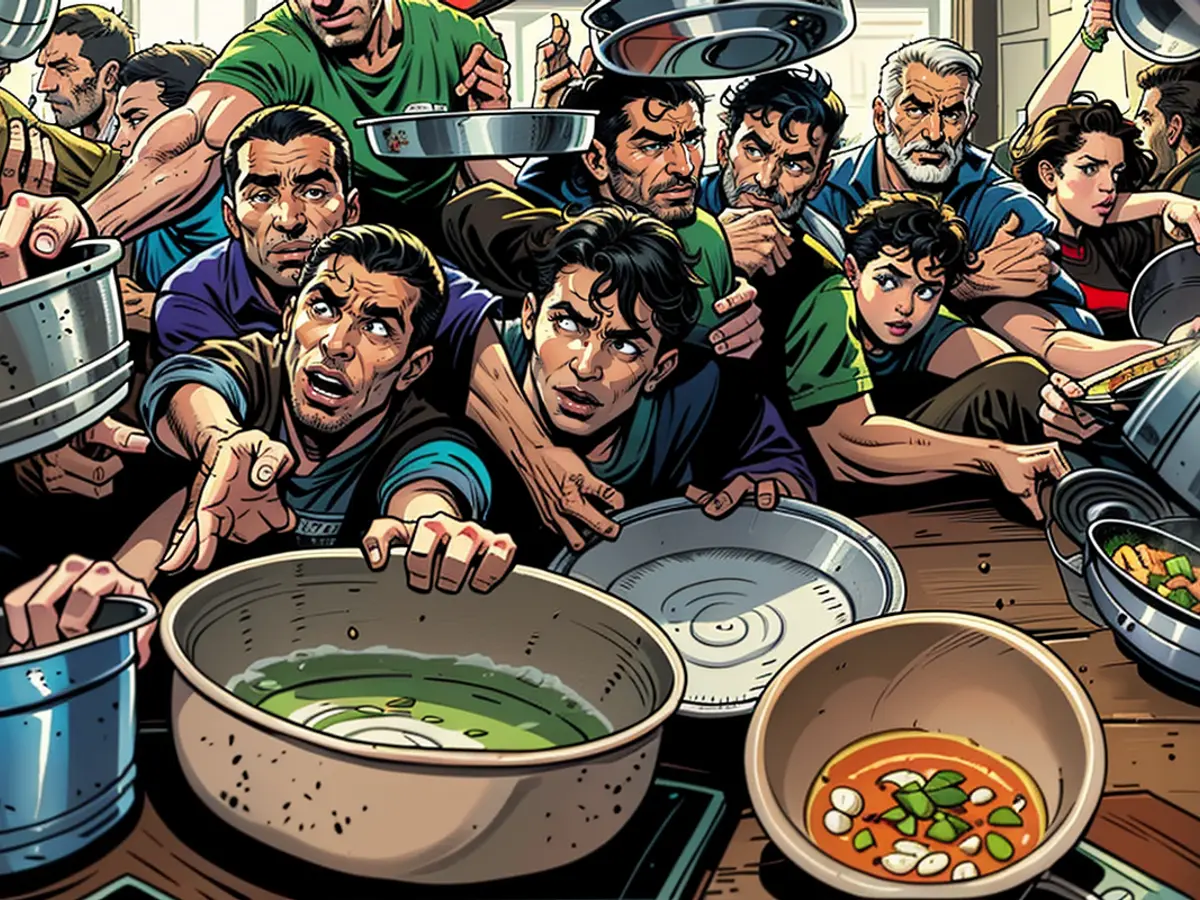The United Nations has reported that no food supplies have reached northern Gaza since the commencement of October, posing a serious threat of starvation for over a million individuals.
In August, around 700 aid vehicles made their way into northern Gaza. However, in September, only 400 did, as commercial activities at Allenby Crossing, the border between the West Bank and Jordan, came to a halt, as reported by the WFP. October saw no food trucks entering northern Gaza, according to the WFP's statement to CNN.
Last Wednesday, the WFP announced in a report that the amount of aid entering the strip had reached its lowest point in months, resulting in the suspension of food parcel distribution in October.
The WFP stated, "Hunger persists, and the risk of famine remains." If assistance flows don't resume, it warned, a million vulnerable individuals will lose their lifeline.
Meanwhile, two central Gaza's key bread factories have remained shut for three consecutive days, as per CNN footage and bakery workers' accounts. The reasons provided were a shortage of flour and fuel. Al-Banna Bakery and Zadna Bakery in Deir al-Balah, both supported by the WFP, have halted operations.
Ahmad Abed, an Al-Banna Bakery employee, said, "I head a family of six. I can feed my family on the days I work. On other days, we don't eat." People are reportedly searching for flour in bakeries, he added.
Amjad Al-Shawa, Director of the Palestinian Non-Governmental Organizations Network, shared that the depletion of flour and other essentials has led to the closure of bakeries that provide bread as part of humanitarian aid.
"Our people have come to rely on this aid. Now, they are at risk of hunger and famine," Al-Shawa mentioned.
Bread remains the primary food source for Palestinians and has become a fundamental necessity since the conflict started about a year ago.
OCHA, the UN's humanitarian agency, recently reported, "September recorded the lowest volume of commercial and humanitarian supplies entering Gaza since at least March 2024."
Israel's military initiated a fresh ground operation in northern Gaza on October 6, after observing Hamas reconstruction activities.
Fresh evacuation orders have been issued for Gaza's northern residents by the military, which also expanded the 'humanitarian area' in Al-Mawasi in the south. However, some residents have expressed concerns about leaving the besieged parts of northern Gaza, citing numerous Israeli attacks on Hamas militants in designated 'safe zones.'
CNN has reached out to the Israeli military for comments on the lack of food and aid in the strip.
Reporter Mohammad al-Sawalihi contributed to this report.
The decreased aid delivery to Gaza has drawn global attention, as the World Food Programme (WFP) noted that October saw no food trucks entering the strip, marking the lowest point in months. This situation in the Middle East poses a significant threat to the world, with the WFP warning that a million vulnerable individuals could lose their lifeline if assistance flows don't resume.








